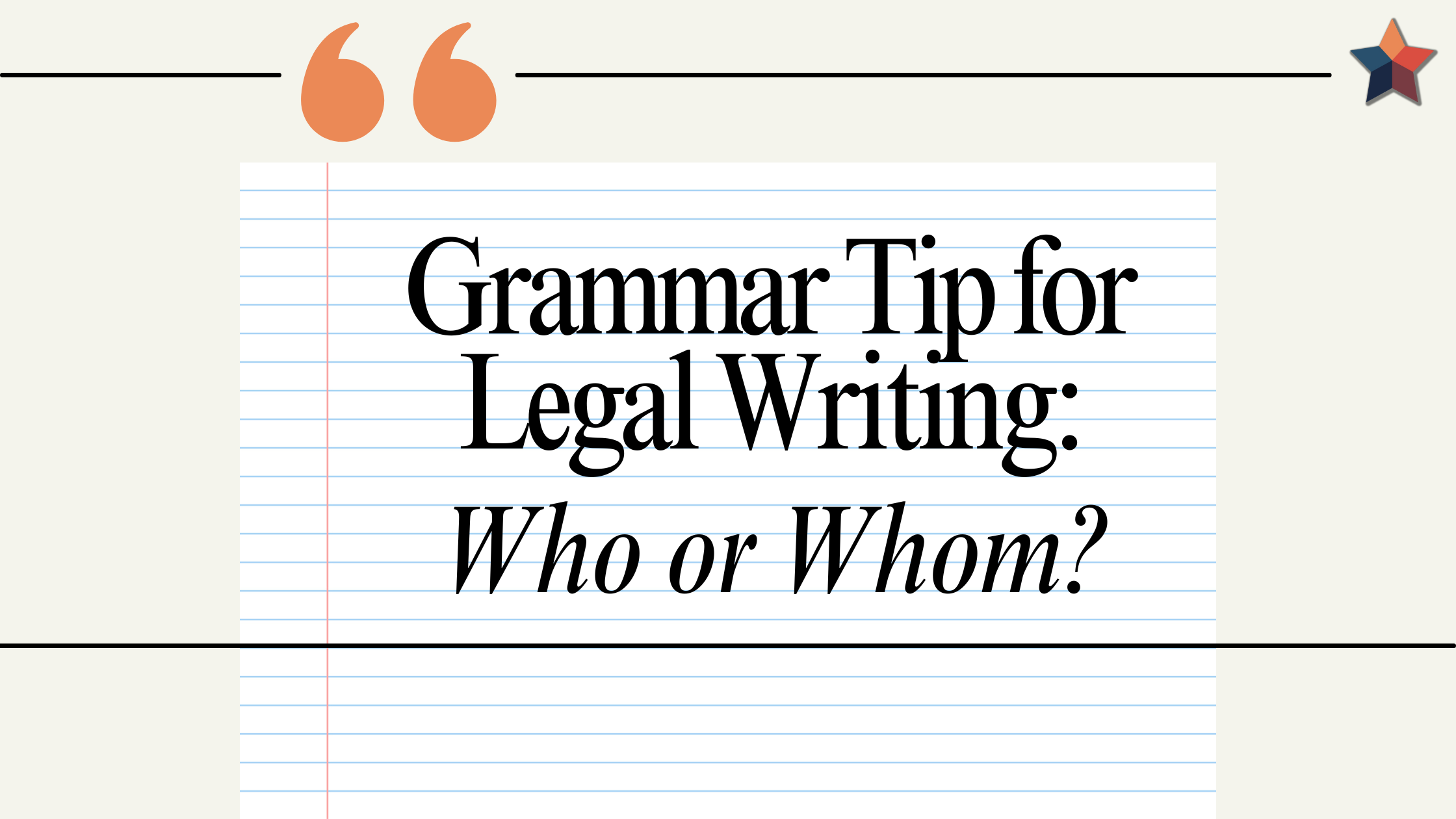When to Use “Who” vs “Whom”
Published on December 17, 2024 From The Editors

(Remember the m’s: “him, them, whom.”)
If you’re unsure whether to use “who” or “whom” in a sentence, here’s a simple test:
Temporarily substitute “he” and “him” in the place where the “who” or “whom” would go. If “he” sounds more natural, use “who,” but if “him” sounds more natural, use “whom.”
If the “who” or “whom” is plural, instead temporarily substitute “they” and “them.” If “they” sounds more natural, use “who,” but if “them” sounds more natural, use “whom.”
Note the mnemonic device: None of “he,” “they,” and “who” end with “m,” but “him,” “them,” and “whom” all end with “m.”
From a grammatical standpoint, substituting “she” and “her” works as well as substituting “he” and “him,” but “her” doesn’t end with “m” and so doesn’t lend itself to the mnemonic.
That’s it for the test. The rest of this post gives examples and additional tips to help with more complex situations where the simple substitution test doesn’t work.
Simple Examples
This test is straightforward with simple sentences. Take, for example, “Who/Whom is the president of that company?” Would we say, “He is the president of that company” or “Him is the president of that company”? We’d use “He,” and “He” does not end with “m,” so “Who” is correct: “Who is the president of that company?”
Here’s a plural example: “Who/Whom are the players on that team?” Would we say, “They are the players on that team” or “Them are the players on that team”? We’d use “They,” and “They” does not end with “m,” so “Who” is also correct in this example: “Who are the players on that team?”
With questions that sound awkward after substituting, try rephrasing as statements instead. For example, a straightforward substitution in “Who/Whom did the president fire?” results in “He did the president fire?” and “Him did the president fire?” Sounds like Yoda, doesn’t it? If we rephrase the question as a statement (“The president did fire who/whom”) and then substitute, we get “The president did fire he” and “The president did fire him.” We’d use “him,” and “him” ends in “m,” so “whom” is correct: “Whom did the president fire?”
Relative Clauses
For a “who” or “whom” in a relative clause, it’s easier to consider only the clause and ignore the rest of the sentence. First, some definitions:
- A clause is a subject with a predicate (for example, “Mason owns that house”).
- A predicate is a verb and any preceding or following adverbs, following objects, and other modifiers (“owns that house” in our example).
- A subject is a noun or noun phrase (“Mason” in our example) that conceptually performs the action of the verb (“owns”).
- Relative pronouns are “who,” “whose,” “which,” “that,” etc.
- A relative clause is a clause introduced with a relative pronoun (for example, “who owns that house”).
It’s important to note that an entire clause can function as part of another clause. For example, with the sentence “Avery threatened to sue whoever/whomever owns that house,” we have two clauses:
- the entire sentence is an independent clause, and
- “whoever/whomever owns that house” is a relative clause, the entirety of which functions as the sentence’s object.
If we employ the substitution test using the entire sentence “Avery threatened to sue whoever/whomever owns that house,” we get the nonsensical “Avery threatened to sue he owns that house” and “Avery threatened to sue him owns that house.” “He” sounds more natural in front of “owns that house,” but “him” sounds more natural after “Avery threatened to sue.” So which is it?
If we limit our scrutiny to only the sentence’s relative clause, the substitution test gives us “he owns that house” and “him owns that house.” The “he” option sounds more natural, and “he” doesn’t end in “m,” so “whoever” is correct: “Avery threatened to sue whoever owns that house.”

Roger Siebert
Roger Siebert is senior editor at Texas Bar Books, where he has worked for eighteen years. Roger earned a BA in English at the University of Missouri–Kansas City and an MA in creative writing at Florida State University, where he also taught first-year composition. In his spare time he enjoys sailing and rowing his homemade boat.